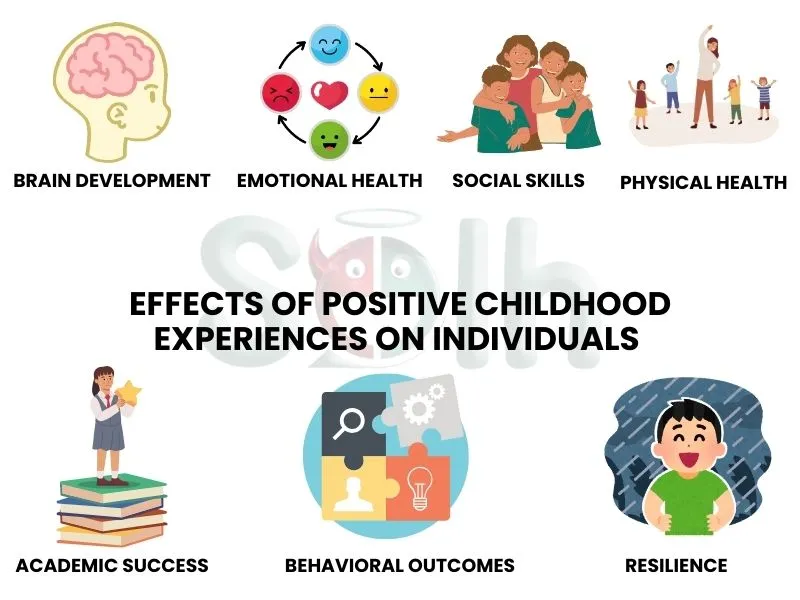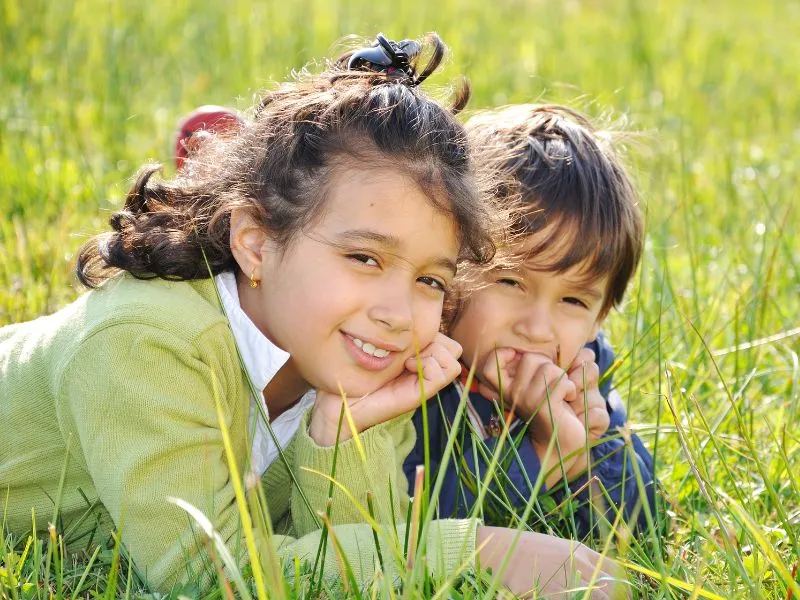Positive childhood experiences have an enormous effect on development and well-being throughout life. The experiences range from interactions and other elements in the environment that a child needs for proper emotional, cognitive, and social development. In order to create conditions that support normal development, parents, educators, and legislators must also have a thorough understanding of the effects that good childhood experiences can have on individuals. This blog makes several arguments for why having happy childhood memories is crucial to overall well-being.
Brain Development
First of all, it is important to note that early childhood and particularly the first years of a child’s life determine the further development of the brain. The child at this age is cognitively advancing a lot and also the neurons in the brain are developing synapse connections. Such positive experiences as participating in exciting activities and receiving loving care make a significant difference in this process. For example, sensory exploration, problem-solving, and language use initiate and reinforce neural pathways.
When placed in enriching environments, the brain of children develops the ability to learn, remember, and regulate emotions.

Secure attachments between a child and their caregiver are also indispensable for brain development. Responsive caregiving regulates the child's stress response system and, therefore, reduces the effect of toxic stress. This is because constant activation can potentially weaken brain development, most likely leading to long-term adverse cognitive and emotional impact. Positive interactions with caregivers help maintain healthy architecture in the developing brain and engender resilience and adjustability.
Emotional Health
Positive childhood experiences are a significant determinant of emotional health. Children raised in supportive environments will more likely have an appropriate secure sense when it comes to self-perception and perception of their sentiments. Such children can develop self-esteem and learn to trust others since they experience appropriate and positive dealings with their caregivers and peers. Each of these fundamental competencies is an aspect of resilience use.
For instance, the child who was always loved and cared for will feel more treasured and sure of himself. Emotional safety like this is what guards one against anxiety and depression. On the other hand, those who have little or no such positive childhood experiences lack good emotional regulation, and the risk of disorder in their mental health multiplies. Positive childhood experiences are, therefore, those that give rise to good emotional well-being and build up resistance.
Social Skills
Positive childhood experiences play an important role in social development, wherein children learn the important social skills of empathy, communication, and cooperation through family members, peers, and educators. These skills are crucial for forming healthy relationships and navigating social situations throughout life. For instance, children growing up in an environment where sharing, taking turns, and solving conflicts by means other than violence give them a sound basis for gaining significant interpersonal skills. Good social interactions teach the child how to understand and respond to the feelings of others; this guide develops empathy and caring in them. These skills not only apply in personal relationships but also at school or even in the workplace, where collaborative settings have to be developed.
Academic Success
Research shows a clear connection between positive childhood experiences and school success. Children who are encouraged and supported in their endeavors tend to develop an attitude toward learning that mostly translates into good school performance. Positive experiences trigger curiosity and cognitive development—ingredients for success in school.
Parents and caregivers who read to their children, play learning games with them, and provide a structured environment to learn will help the child achieve success in school. Schools will provide enrichment and support for the children to become successful students. Praise and positive rewards encourage the continuation of the desire by children to strive towards succeeding in school.
Physical Health
Positive childhood experiences are predictive of better health outcomes. Those children raised in warm environments pursue healthy lifestyles more commonly because they tend to see fewer occurrences of chronic illnesses later in adulthood. For example, those children who learn to be physically active and eat healthily are more likely to continue living so through successive years of their lives.
This, in turn, decreases the body's 'toxic stress' reaction. When stress is held for long, it causes cardiovascular diseases, obesity, and immune system weakness. Thus, caregivers can counter this by providing the child with a proper environment that will prevent the worsening of the condition. That is why the establishment of positive experiences is critical to the healthy development of a child in both aspects of his well-being: mental and physical.
Behavioral Outcomes
Positive reinforcements with supportive environments can be considered one of the most influential approaches to a child's behavior. Children with positive interaction that features consistent, precise boundary settings will, in turn, reduce the possibility of developing their behavioral problems. For example, children who are praised for good behavior and given psychologically warm guidance to develop self-discipline and a sense of responsibility. On the other hand, negative experiences in the form of harsh discipline or neglect may lead to behavioral issues and risky conduct. Positive childhood experiences, such as constructive criticism and the ability to express oneself, bolster healthy behavioral patterns and thus diminish antisocial tendencies and substance abuse. Through the encouragement of different positive experiences, caregivers, and educators can arm children with relevant competencies to use in the making of responsible decisions to avoid dangerous behaviors.
Resilience
Resilience refers to the ability of a person to be able to stand back or recover from stress as well as negativity and to be able to perceive problems in the right manner. Positive childhood experiences are very important when it comes to building resilience. When children grow up in a supportive environment, they make use of this source to build their confidence and problem-solving abilities, which are needed to overcome adversities with optimism and persistence.
Supportive relationships with caregivers, teachers, and peers cushion the child in a cradle of security during hard times and enable them to surge back from stress and setbacks. For example, children who have a trusted adult to approach when in need are likely to learn how to be resilient. Directly and cumulatively, children experience a premium placed on autonomy and critical thought that allows them to survive adverse experiences.
Conclusion
Positive childhood experiences are, therefore, essential for children's all-round development, whose impacts range to mental, emotional, social, and physical well-being during a lifetime. They can provide a springboard toward living a whole, meaningful life by laying the ground for healthy brain development, emotional security, social adeptness, school achievement, healthiness, good conduct, and resilience. Parents, educators, and policymakers have a responsibility to ensure children have positive experiences since the benefits of these advantages will help them well into the future, shaping the individual and society. It is both right and practical to invest in early experiences that will make future generations healthier, more resilient, and even more successful. All children can develop into contributing positively to the world if they are given warm, loving, and stimulating surroundings in which to grow. These are events that have a long and powerful influence, confirming that the welfare of children should come first.
Understanding the differences and the individual importance of mental health professionals is an imperative step towards your better mental health journey. Knowing when to take medication and when to seek therapy helps in making informed decisions for your mental health. Solh brings you the solutions and the appropriate community support you need for better and improved mental health. Get the following by downloading the SOLH app now:
Normalises Seeking Help: Solh combats the stigma connected with mental health by establishing a judgment-free zone. This can encourage someone who is struggling to seek expert help.
Anonymous Support Groups: Connecting with those who understand your problem can be quite useful. Sharing experiences and realizing they are not alone can provide a great source of comfort and encouragement.
Talk Now: When dealing with overwhelming emotions, have access to a counselor who can help you guide you through any hiccup you face.
Clinical Support: The app's simple access to confidential consultations can be an excellent initial step for someone struggling to achieve goals who is hesitant to pursue traditional in-person therapy.
Other: Solh is a one-stop place for you to access and navigate different sources, such as audios, guides, and reading material, to help you deal with any ongoing stressor.



